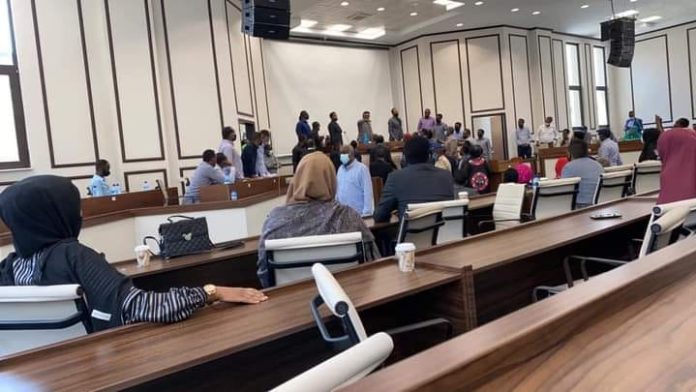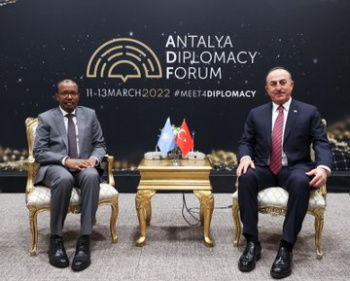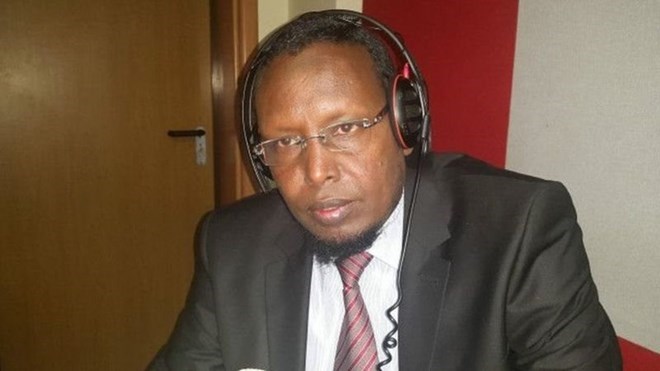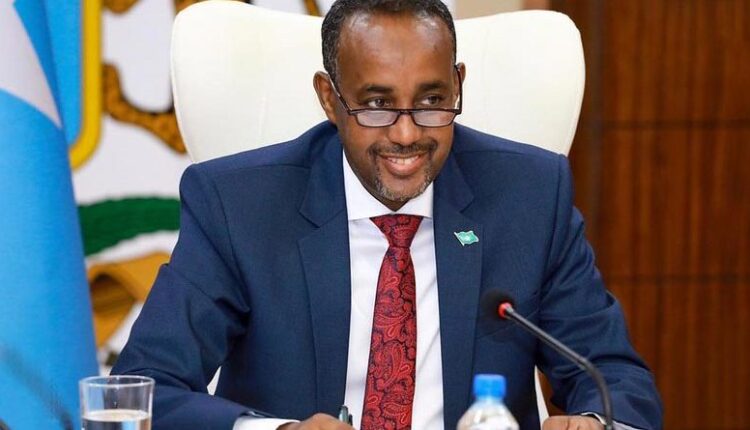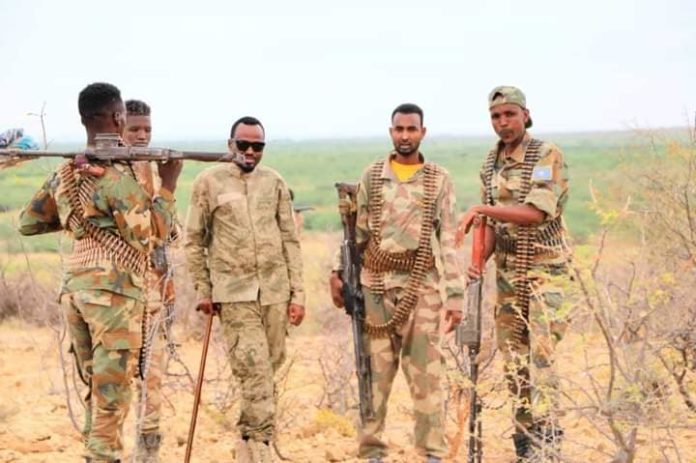The Force Majeure Dilemma, and Way forward for Somali Oil and Gas
 The Force Majeure Dilemma, and Way forward for Somali Oil and Gas
The Force Majeure Dilemma, and Way forward for Somali Oil and Gas
The Federal Government of Somalia (FGS) has a monumental task of building sustainable peace, improving
security, building national infrastructure, and increasing access to quality health services and education for
the people of Somalia. One of the greatest pillars that the government and the people of Somalia peg their
hopes of achieving the socio-economic development that has eluded them over the last two decades is the
wealth of hydrocarbons that the country sits on, both onshore and offshore – on the Indian Ocean floor.
Acknowledging the significant transformational power that petroleum and gas discoveries could have on
the Somali economy, the FGS has been on record declaring that it will honour previous agreements that
had been entered into between the previous government and multi-national investors in the sector.
Prior to the civil war in 1991, there had been a rush by trans-national oil companies to explore the
hydrocarbons in Somalia. Notable players in the game included Texaco,Conoco-Phillips, Amoco, Total, Shell
(Pectin), and Eni, all who ditched their Somalia operations after declaring a “Force Majeure,” and hoping to
return after the civil war.
Some of Major Oil Exploration Deals signed with the old Somali Democratic Republic (SDR).
Company Block Size Year Deal Signed
Chevron
International
CONOCO Nogal, Sool and Togher
AMOCO Somalia
Petroleum Co.
North West Coast of
Somalia, both on-shore
and off-shore
regions
North & Southwest
Mogadishu
Block 6
Block 9
Block 12
Total
40,509Km2 or 10,009,744 acres 1986
98,700Km2 or 1986
12,347Km2 or 3.05 million acres
9,515Km2 or 2.35 million acres
13,229Km2 or 3.27 million acres
8.67 acres
1987
The Controversy
However, the circumstances of their coming back raise more questions than answers. To start with, is the
problem of whether declaring a Force Majeure automatically stops a lease from expiring? Every oil and gas
lease contains a force majeure clause, commonly referred to the “Act of God”. This clause outlines specific
events that can trigger the Force Majeure. Since every contract is unique, what happens to any contract
that was due for expiry and did not possibly include the events of 1991 as a sufficient condition for
suspending operations? Will the government still honour such?
Second is the question of the current state of Somalia Vs. the old. The 20 years-old civil war completely
destroyed the old state of Somalia, including the institutions responsible for entering into, and enforcing
legal contracts on behalf of the people of Somalia. It has thus been argued that the state of Somalia with
which the oil companies entered into contracts for mining operations no longer exists. What we have now
is a completely new state being founded from the ground-up, with new institutions, a new Petroleum law,
and with everything completely detached from the old state, saves for the soil on which the old state stood.
In such a case, is the FGS obliged to honour contracts that it never entered into?
Third, there is the question of the legitimacy of the mining agreements, given that they had been entered
into with an autocratic regime. It is no secret that the former government of Siyyad Barre presided and
authoritarian government that was not representative of the common will of the people of Somalia. A
government that lacks popular support lacks legitimacy, and so does its engagements. The size of
exploration blocks awarded to some oil companies that evoked the Force Majeure has been termed
ridiculously large, The question then becomes to what extent the new state of Somalia would be obliged to
honour such deals, which are evidently skewed in favour of the trans-national interests at the expense of
Somalia’s national interest.
Finally, Somalia is now a federal state with a national government and regional governments. There are
semi-autonomous states of Puntland and Somaliland, with their own governments and legal structures too.
How then would the FGS honour Force Majeure agreements with companies, which had operations in
areas including these two semi-autonomous states, given that the two have previously entered into oil
exploration agreements with foreigners without consulting the FGS? What say would regional governments
under FGS have over the continuation of the exploration and exploitation works by foreigners within the
regions?
These are some of the issues that the FGS and Ministry of Petroleum and Natural Resources have to
grapple with, in the current quest to bring back investors into the country’s oil and gas sector.
Way Forward
The issues raised above notwithstanding, Somalia need foreign investors to help the country realize the full
potential of its hydrocarbon endowments. Large multi-nationals no doubt have the kind of muscle and
market networks the country needs to fast-track development of its oil and gas sector. Honouring the Force
Majeure clause in old contracts with such companies would be a good way of demonstrating commitment
to the continuity of business with such corporations. However, in the new state, national interest should
precede any other interest in such contracts.
For this reason, the Ministry of Petroleum needs to set up a task force to evaluate the terms of the old
contracts on a case-by-case basis, as opposed to blanket acceptance of all the conditions set in the old
engagements. In some cases, it would perhaps serve the trans-nationals better had they sought new
licenses than proceeding with the Force Majeure agreements. The trans-national oil corporations, on their
part, should genuinely engage the FGS through the Minister of Petroleum & Mineral Resources to explore
ways of creating a favourable environment for the growth of Somalia’s oil and gas sector. This is the only
way to achieve a win-win situation for the corporations and the people of Somalia.
There is urgent need to review the current Petroleum law to enable it handle the growing level of
sophistication in the sector. The new law should be clear on a number of issues, which include production
sharing, revenue sharing, taxation, environmental management, and corporate social responsibility among
others, as they affect the oil and gas sector.
As the sector grows, there should be deliberate policies to grow local and regional companies to become
significant players in Somalia’s oil and gas sector. There are many Somali-owned energy companies
operating within East Africa and beyond, which should be encouraged to return home and take their right
positions in Somalia’s economic development.
Finally, there is need for the FGS to dialogue with the people. First, there is need for clarity of FGS’ rights to
enter into, or to execute agreements on behalf of the semi-autonomous states of Puntland and Somaliland.
This will help to avoid resource-based conflicts between the FGS and the two units. Second, as a way to
forestall possible fallouts between FGS and regional governments, there is need for wider consultations
with the regional governments over the return of old trans-nationals oil corporations, as well as the entry
of new investors into the regions. This is the surest way of ensuring that the investors have the “social
license “to operate in the various parts of the country.
The foregoing notwithstanding, Somalia stands at the verge of massive economic transformation, but only
if the country can handle with sobriety the sensitive issue of exploration and production, which has been
the curse of many resource rich states of the world.
About the Author
Mohamed Ahmed (Minjir) is the founder of Geological Society of Somalia, a professional association that
seeks to promote awareness of the country’s natural resources (Minerals Oil and Gas).
Contact Emial: [email protected]
NB. Kindly want to inform you that we are currently developing www.geosomalia.org and it will come
soon














